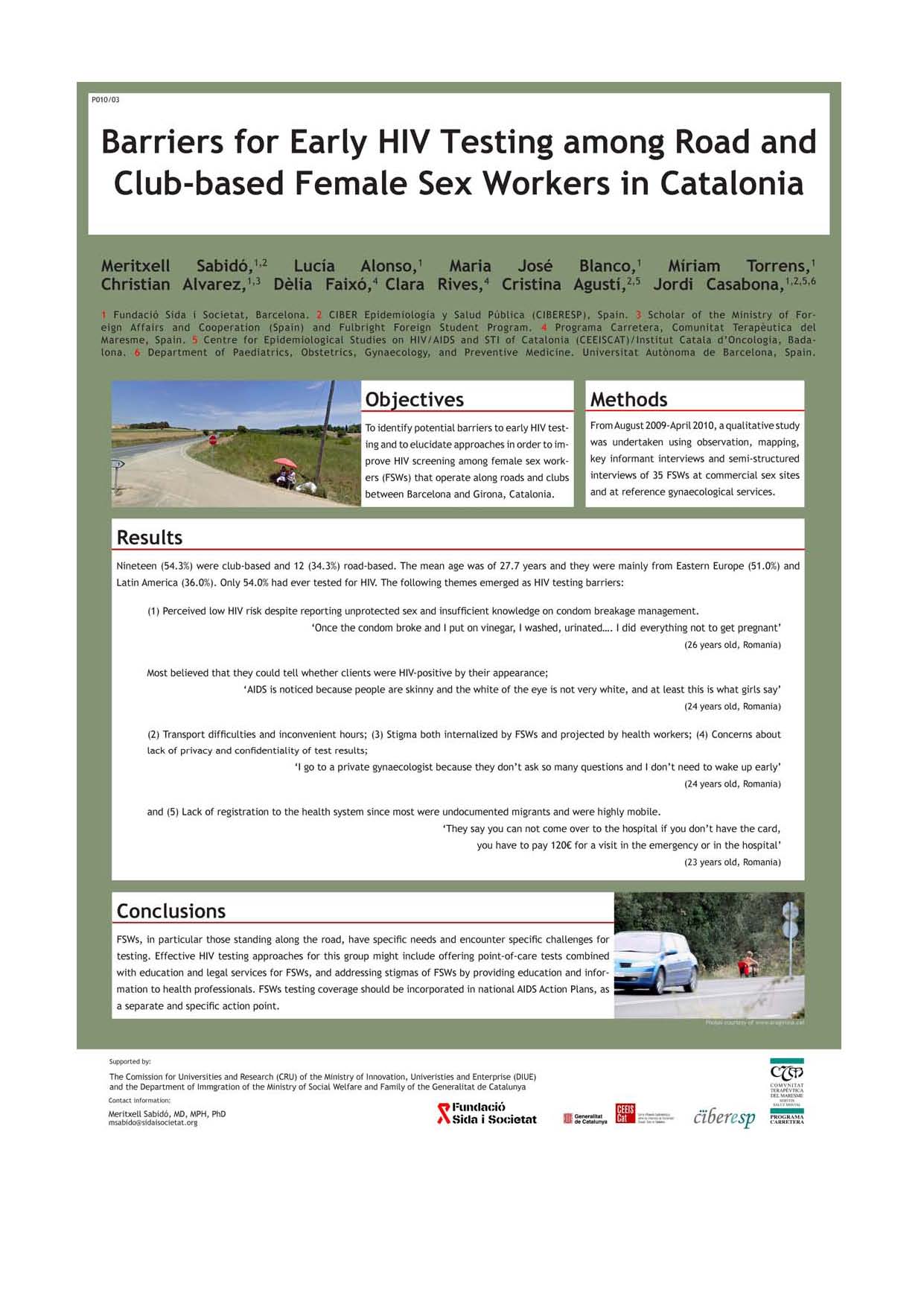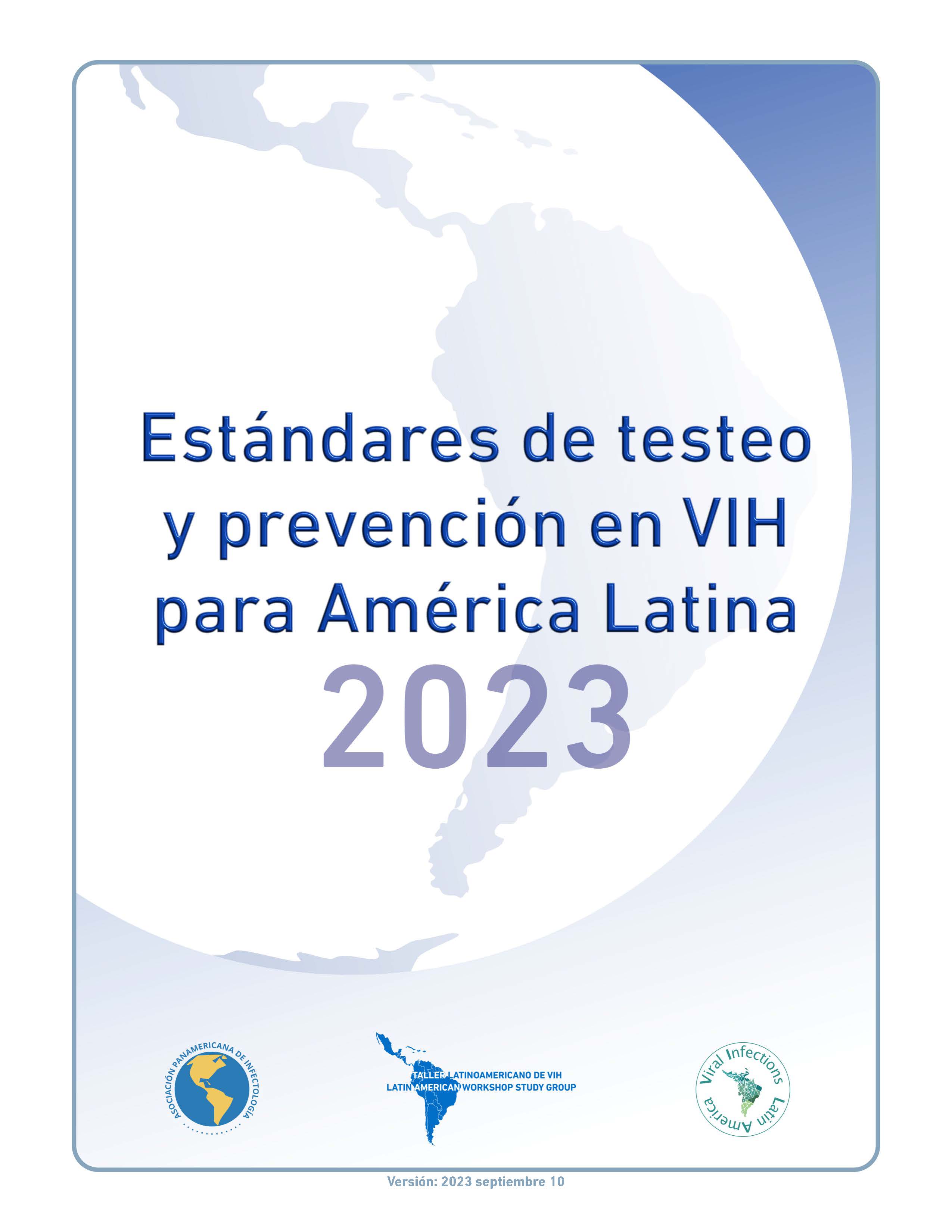Resumen
Objectives: To identify potential barriers to early HIV testing and to elucidate approaches in order
to improve HIV screening among female sex workers (FSWs) that operate along roads and clubs
between Barcelona and Girona, Catalonia. Methods: From August 2009-April 2010, a qualitative
study was undertaken using observation, mapping, key informant interviews and semi-structured
interviews of 35 FSWs at commercial sex sites and at reference gynaecological services. Results:
Nineteen (54.3%) women were club-based and 12(34.3%) road-based.. Mean age was of 27.7 years
and they were mainly from Eastern Europe (51.0%) and Latin America (36.0%). Only 54.0% had ever
tested for HIV. The following themes emerged as HIV testing barriers: (1) perceived low HIV risk
despite reporting unprotected sex and insufficient knowledge on condom breakage management.
Most believed that they could tell whether clients were HIV-positive by their appearance; (2)
transport difficulties and inconvenient hours; (3) stigma both internalized by FSWs and projected
by health workers; (4) concerns about lack of confidentiality of test results; and (5) lack of
registration to the health system since most were undocumented migrants and were highly mobile.
Conclusions: FSWs, in particular those standing along the road, have specific needs and encounter
specific challenges for testing. Effective HIV testing approaches for this group might include offering
point-of-care tests combined with education and legal services for FSWs, and addressing stigmas of
FSWs by providing education and information to health professionals. FSWs testing coverage should
be incorporated in national AIDS Action Plans, as a separate and specific action point. (Extraído del "Programme and abstract book " del congreso)





